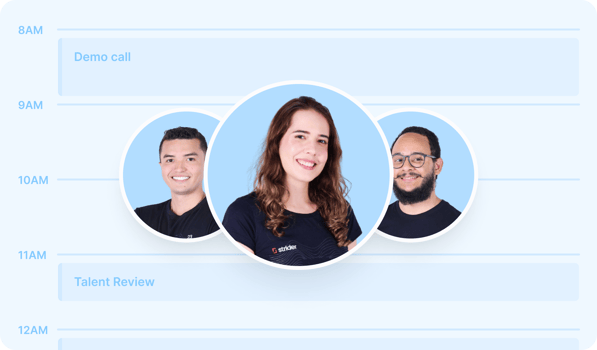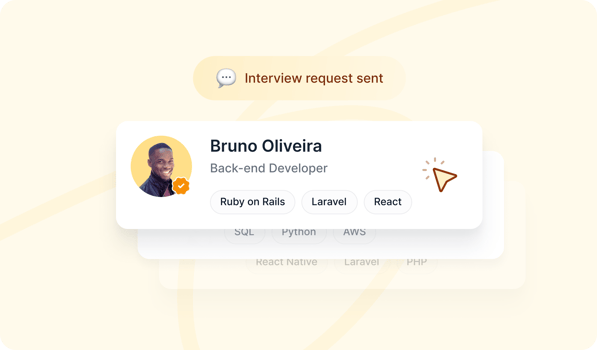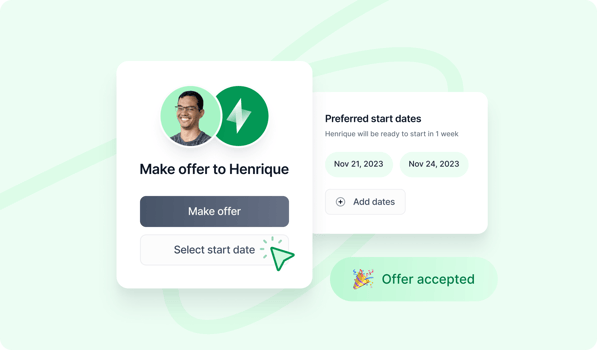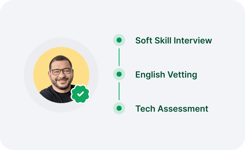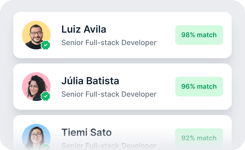Hire Remote Database Developers
Hiring a skilled database developer is crucial for any company that relies on databases for storing, organizing, and managing data. With the increasing importance of data in business operations, it is essential to have a team of qualified database developers who can effectively handle all aspects of database development and management.
A database developer is responsible for designing, developing, and maintaining database systems that support an organization's data management needs. They must have a deep understanding of database development concepts and practices, expertise in programming languages like SQL, and proficiency in database management systems such as Microsoft SQL Server and MS Access. Finding the right database developer with the right technical and soft skills can be challenging, especially with the increasing demand for these professionals.
This article will discuss practical strategies for hiring database developers that can help you find the right talent to meet your business needs.
What to Look for When Hiring Database Developers
Technical skills
When hiring a database developer, looking for a candidate with a solid technical background is essential. They should have extensive database development and management knowledge and proficiency in programming languages like SQL, Java, and Python. In addition, they should have experience with database management systems such as Oracle, MySQL, SQL Server, and MS Access.
A great database developer should be able to design and implement complex database architectures, including tables, views, stored procedures, and triggers. They should also be able to ensure data integrity, manipulate databases efficiently, and analyze data to extract meaningful insights. Moreover, they should be familiar with cloud computing and distributed systems, as they're becoming increasingly essential in modern database development.
Communication skills
Aside from technical expertise, practical communication skills are critical for database developers. They should be able to communicate technical concepts and solutions to non-technical stakeholders such as project managers, clients, and team members. They should also be able to listen actively, understand business requirements, and suggest solutions that align with them.
A great database developer should be an excellent collaborator and team player, able to work effectively in cross-functional teams. They should be responsive and able to provide timely updates on project progress and issues. Furthermore, they should have good time management skills to meet project deadlines and handle multiple projects simultaneously.
Data Security
Data security is one of the most critical aspects of database development. It is essential to look for a database developer with a thorough understanding of data security and the ability to ensure that databases are secure. The database developer should be able to identify potential security risks, implement security protocols, and develop safe systems to protect data. They should also be able to conduct regular security audits and recommend improvements to ensure the database's integrity. Additionally, they should be familiar with data privacy regulations, such as GDPR and HIPAA, and ensure the database complies with them.
Proven Track Record
When hiring a database developer, looking for someone with a proven track record of success is essential. You should seek a developer who can provide references from previous clients or employers and showcase their portfolio of successful projects. A great database developer should have experience in various projects, including data modeling, application development, web applications, and complex queries. They should also have experience maintaining and optimizing databases to ensure maximum efficiency and performance. A track record of successful projects demonstrates that the developer can deliver high-quality work, meet deadlines, and handle complex projects.
Soft Skills
Besides technical expertise, it is also essential to consider other soft skills when hiring a database developer. Skills such as problem-solving, critical thinking, and attention to detail are necessary for database development. A great database developer should be able to think creatively to solve complex problems, pay attention to detail to ensure data integrity and communicate effectively with stakeholders. They should also be adaptable and able to learn new technologies quickly. Good soft skills help the database developer work effectively in a team, communicate with stakeholders, and handle complex projects.
Top 5 Database Developers Interview Questions
As someone looking to hire a top-notch database developer, asking the right questions can help you identify the right candidate for the job. Here are the top 5 database developers' interview questions to ask.
What do you understand about Data Independence in Database development? What are its two types?
This interview question can help you evaluate a database developer's knowledge of database development and data independence. Data independence refers to the ability of a database to change its schema without altering the applications that use it. The two types of data independence are physical data independence and logical data independence.
Physical data independence refers to the ability to modify the physical schema of a database without affecting the applications that use it. Logical data independence, on the other hand, refers to the ability to change the logical schema of a database without affecting the applications that use it. With this question, you can evaluate the candidate's technical knowledge of database development, data independence, and ability to design flexible and scalable databases.
What do you understand by 'Atomicity' and 'Aggregation'?
This question can help you evaluate a database developer's SQL and database management system knowledge. Atomicity and aggregation are concepts in SQL that database developers should be familiar with. Atomicity refers to the ability of a transaction to be treated as a single unit of work that is either completed in its entirety or not at all. Aggregation, on the other hand, refers to combining multiple data sets into a single unit.
With this question, you can evaluate the candidate's knowledge of SQL and ability to design and manage efficient databases optimized for performance.
What is Database partitioning, and does it help in database management?
Database partitioning is a technique to improve database performance by breaking up large tables into smaller, more manageable pieces called partitions. By dividing large tables into smaller ones, database partitioning can help reduce contention and improve query response times. With this interview question, you can evaluate the candidate's technical knowledge of database partitioning, experience with database management systems, and ability to design and manage complex database systems.
What do you understand by Index hunting?
When hiring database developers, asking about their experience with index hunting is essential, as it's a crucial skill for optimizing database performance. By asking this question, you can assess a candidate's technical skills, including their ability to analyze query performance, identify problematic queries, and create effective indexes. Additionally, the candidate's experience with index hunting can indicate their proficiency with database management systems and query optimization techniques, which are critical to the success of any database-driven application.
Index hunting optimizes database performance by identifying and creating indexes on specific tables or columns. An index is a data structure that allows for faster data retrieval, as it serves as a pointer to the location of the data in the table. Index hunting involves analyzing the database queries and identifying slow ones requiring excessive resources. This can be done using database performance monitoring tools or analyzing query logs. Once the problematic queries are specified, index-hunting involves determining which columns or tables to index to speed up the questions.
What do you understand about Database Triggers?
It would be best if you asked this question to a database developer to gauge their proficiency in working with database triggers. A candidate with experience in working with database triggers can be a valuable asset in improving the reliability and consistency of a database management system and streamlining specific database tasks. An experienced database developer should be able to explain how triggers work, the syntax for creating triggers in their preferred database management system, and provide examples of scenarios where catalysts can help improve data integrity and automate specific database tasks.
A database trigger is a procedural code executed automatically in response to certain database events, such as an insert, update, or delete operation on a specific table. Triggers help automate certain database tasks, enforce business rules and data consistency, and audit data changes.
Additionally, a strong candidate should be able to discuss the potential performance impact of using triggers, such as increased overhead on database operations, and how to optimize triggers to minimize their impact on database performance.


